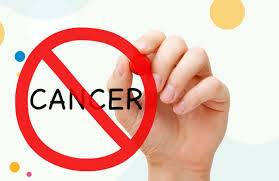7 Habits Doctors Recommend to Avoid Cancer Risks
Cancer remains a leading cause of death worldwide, but research shows that nearly half of all cases could be prevented through simple lifestyle changes. By incorporating healthy habits into your daily routine, you can significantly reduce your risk of developing cancer. Here are seven doctor-recommended habits to help you stay one step ahead of this disease.
1. Avoid Tobacco in All Forms
Using tobacco is one of the most significant cancer risk factors. Whether it’s smoking cigarettes, chewing tobacco, or being exposed to secondhand smoke, these habits increase your chances of developing lung, throat, mouth, and other cancers. Quitting tobacco can drastically lower your risk and improve overall health.
- What You Can Do: Seek support programs to quit smoking and avoid environments where secondhand smoke is prevalent.
2. Maintain a Healthy Diet
What you eat directly impacts your cancer risk. Diets rich in fruits, vegetables, whole grains, and lean proteins can help protect against certain cancers, while limiting processed foods, red meats, and sugary drinks reduces risks.
- Actionable Tip: Transition to a plant-based diet, and opt for healthier cooking methods like baking or steaming instead of frying.
3. Stay Physically Active
Regular physical activity not only helps maintain a healthy weight but also reduces inflammation and improves immune system function, which lowers the risk of cancers like breast, colon, and lung.
- Goal: Aim for at least 150 minutes of moderate exercise or 75 minutes of vigorous exercise weekly. Activities like walking, cycling, or yoga are great options.
4. Protect Yourself from the Sun
Excessive exposure to ultraviolet (UV) rays increases the risk of skin cancer, including melanoma. UV rays can damage skin cells even on cloudy days.
- Steps to Take: Use sunscreen with SPF 30 or higher, wear protective clothing, avoid tanning beds, and limit direct sun exposure during peak hours (10 a.m. to 4 p.m.).
5. Limit Alcohol Consumption
Alcohol is linked to various cancers, including those of the mouth, throat, liver, and breast. The risk increases with the amount and frequency of consumption.
- Recommendation: If you drink, limit alcohol intake to one drink a day for women and two drinks a day for men, or consider non-alcoholic alternatives.
6. Get Vaccinated
Certain infections are linked to cancer. For example, the human papillomavirus (HPV) is responsible for cervical and throat cancers, while hepatitis B increases the risk of liver cancer.
- Advice: Get vaccinated against HPV and hepatitis B, and practice safe behaviors to reduce exposure to these viruses.
7. Prioritize Screenings and Regular Checkups
Early detection of cancer increases the chances of successful treatment. Routine screenings for cancers like breast, colon, and cervical can catch abnormalities before they progress.
- What to Do: Speak with your doctor about appropriate screenings based on your age, gender, and family history.
A Healthier Tomorrow Starts Today
While no lifestyle change can eliminate cancer risk entirely, adopting these habits can significantly lower your chances. Think of these changes as daily investments in your health—small steps that build toward a longer, healthier life. Start today, and empower yourself with choices that protect you and your loved ones.
For additional tips and support, consult resources like the Mayo Clinic, UCLA Health, and the Canadian Cancer Society. These organizations provide trusted, evidence-based advice for cancer prevention.


